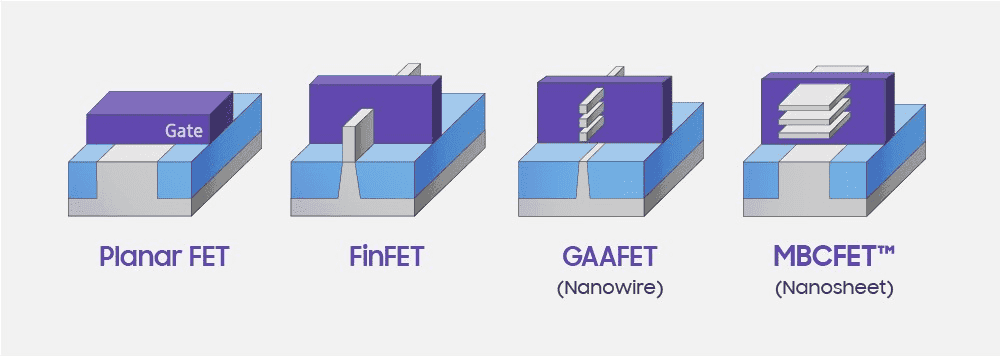TSMC recently announced its plans for the 3nm and 2nm manufacturing processes. The company expects to start its move to 3 nm by the end of the year, which means manufacturing of these chips will begin pretty soon. Samsung, another key manufacturer of ARM-based chips, may get an advantage in time by starting the 3nm mass manufacturing a bit earlier. According to fresh reports, Samsung is about to begin mass manufacturing 3nm chips as soon as the next week.
Samsung lost Qualcomm to TSMC after the problematic heating and energy issues within the Snapdragon 8 Gen 1. Now, Qualcomm is likely going with TSMC for the Snapdragon 8 Gen 2 production. It means Samsung is losing a key partner. The Korean firm needs to prove itself and will have a chance to make things right with the 3nm chips. According to the leaks, Samsung’s 3nm node will bring a 35$ percent decrease in are, 30% higher performance, or 50% lower power consumption when compared to the 5nm manufacturing process.
Samsung is changing the manufacturing process with a 3nm node
The company will achieve this by switching to a gate-all-around (GAA) design for transistors. This is the next step after FinFET as it allows the foundry to shrink transistors, without hurting their ability to carry current. Interestingly, Samsung may have solid help from the US to enhance its manufacturing capabilities.

Back in the last month, US President Joe Biden paid a visit to Samsung’s manufacturing plant at Pyenogtaek to see a 3nm tech demonstration. Back in the last year, Samsung was reportedly planning to invest around $10 billion to build a 3nm foundry in Texas. Now, the investment has easily reached the $17 billion amount and may begin operations in 2024. Worth noting that TSMC is also expanding its operations to Japan and also in its homeland.
The problem now is the “yield” of its 3nm process. As per Samsung, the 3nm process is “approaching a similar level to the 4nm process”. According to analysts, Samsung’s 4nm yield has several issues that may also compromise the 3nm manufacturing process. We’re obviously expecting the Exynos 2300 SoC to be made on this 3nm manufacturing process and give power to some Galaxy S23 variants. Just like TSMC, Samsung also plans the 2nm manufacturing for 2025.





